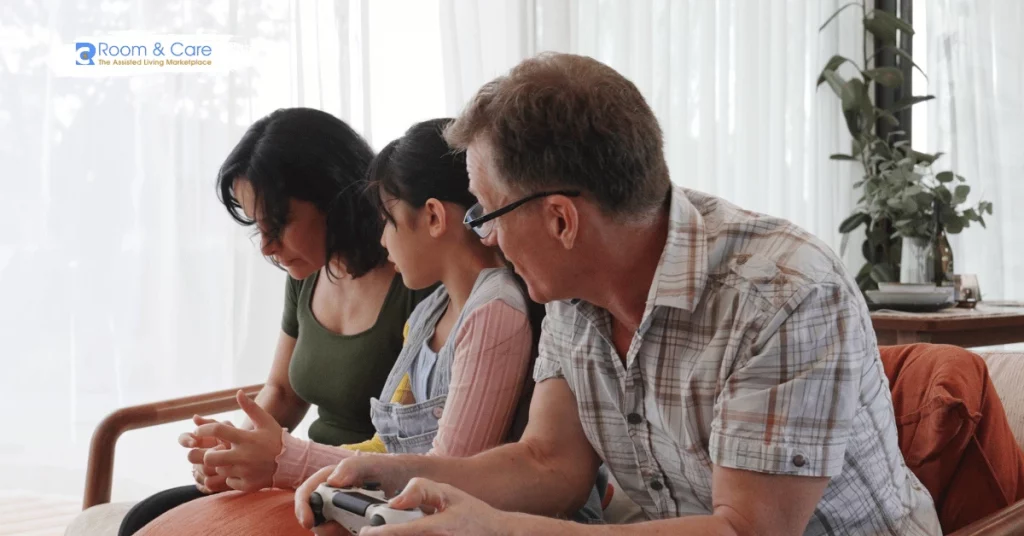

Assisted living facilities for young adults provide a unique blend of independence, support, and community. These facilities cater to younger individuals who may face challenges living on their own due to medical conditions, disabilities, or mental health needs. Often, these adults still desire a high level of independence but benefit from assistance with daily tasks, access to healthcare, and opportunities for social connection. This guide explores everything you need to know about choosing the best assisted living facility for young adults, including essential considerations, services provided, and practical advice.
Assisted living is often associated with senior care, but there’s a growing demand for environments tailored to younger adults. Young adults entering these facilities might have diverse needs, ranging from physical disabilities to mental health conditions. They may require daily assistance but also seek a lifestyle that fosters growth, autonomy, and social engagement.
Young adults who benefit from assisted living facilities often include:
Assisted living facilities for young adults provide various services that support independence while meeting individual needs. While services vary by facility, the following are common offerings:
Selecting the right facility is a deeply personal choice. Here are the primary factors to consider when evaluating different assisted living facilities for young adults.
Specialized Care Options The best facilities for young adults offer specialized care tailored to individual needs. Ask about the staff’s experience with younger residents and whether care plans are regularly reviewed and updated.
Community and Social Engagement A supportive community is vital for younger adults who thrive on social interactions and friendships. Look for a facility that promotes community involvement through structured social activities, recreational programs, and opportunities to form friendships with other residents.
Focus on Independence and Personal Growth Young adults often seek growth and self-improvement. Facilities that provide life skills training, educational programs, and career development are ideal. These options support young adults in building confidence and preparing for potential transitions to more independent living arrangements.
Location and Accessibility Proximity to family, friends, and local amenities can make a significant difference in quality of life. Ensure the facility is accessible for visitors and has transportation options for appointments, community outings, or educational programs.
Health and Safety Protocols Safety is paramount, especially for those with complex medical needs. Assess each facility’s health and safety protocols, ensuring there is round-the-clock support from qualified healthcare providers.
Cost and Financial Assistance Options Assisted living can be a significant financial investment, so it’s essential to evaluate costs upfront. Look into whether the facility accepts Medicaid or other financial aid options that can help reduce the financial burden.

Finding the right fit for yourself or a loved one requires careful research and consideration. Here are some actionable steps to guide your decision-making process:
Young adults in assisted living benefit from a structured yet independent lifestyle, with tailored support to help them live fulfilling lives. Key benefits include:
Q: Can young adults work or study while living in an assisted living facility?
A: Yes, many facilities support young adults who work or attend school by offering flexible schedules, transportation assistance, and access to resources for educational growth.
Q: Are family members allowed to visit frequently?
A: Most facilities welcome family visits and encourage family involvement. It’s best to confirm the facility’s specific visitation policies to ensure they align with your needs.
Q: Is there 24/7 medical staff available?
A: Many facilities offer round-the-clock medical support for residents with complex health needs. Be sure to verify each facility’s medical services and emergency response protocols.
Q: How is the cost of assisted living for young adults covered?
A: Costs vary by facility and location. Some accept Medicaid, while others may offer sliding scale payments based on income. Research financial aid options available to make an informed choice.
Q: Will the resident have opportunities to engage in social and recreational activities?
A: Yes, most assisted living facilities for young adults place a strong emphasis on social engagement, offering activities that encourage interaction, creativity, and personal growth.
Transitioning to an assisted living facility can be a big adjustment, so it’s essential to approach it with patience and support. Here are tips to make the transition as smooth as possible:

For those looking for comprehensive options, Room and Care offers a directory of top-rated assisted living facilities, adult family homes, memory care facilities, nursing homes, and independent living communities. With no referral fees or middlemen, our service provides a direct connection to quality care, helping you find the best match for your needs and budget.
Choosing an assisted living facility for a young adult involves understanding their unique needs and seeking an environment that promotes independence, growth, and social engagement. By researching facilities, touring options, and evaluating services, you can make a well-informed decision that leads to a positive, fulfilling experience.
If you’re ready to explore the best options, Room and Care is here to guide you. Our platform provides access to a variety of care options, empowering you to make choices that enhance the well-being and independence of young adults in need of supportive living arrangements.